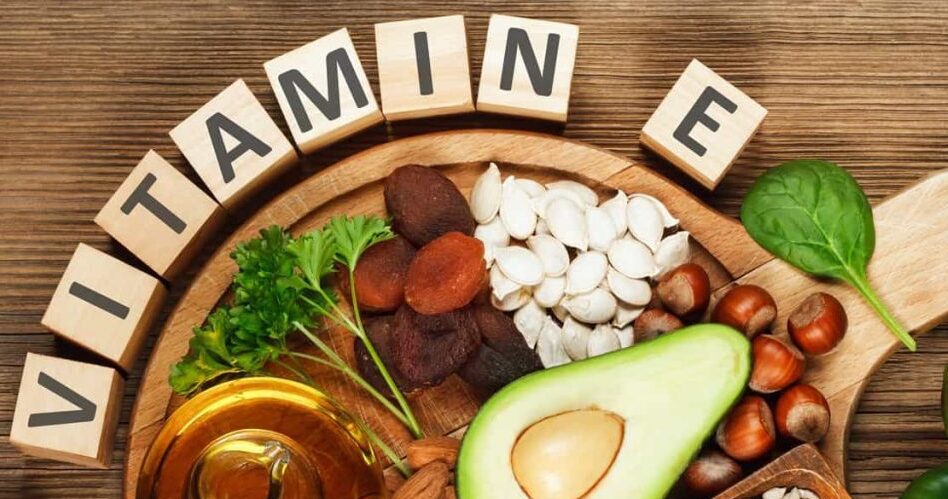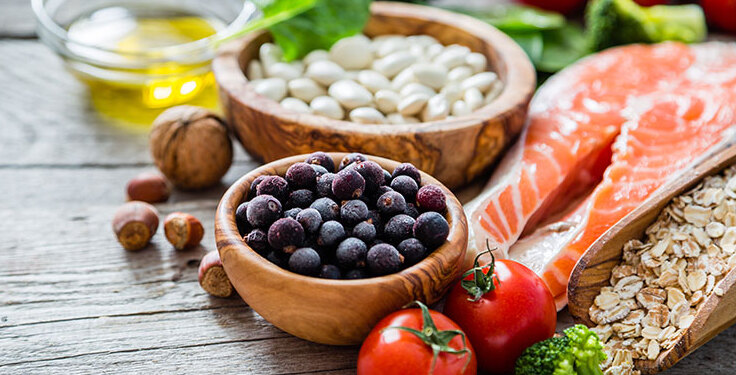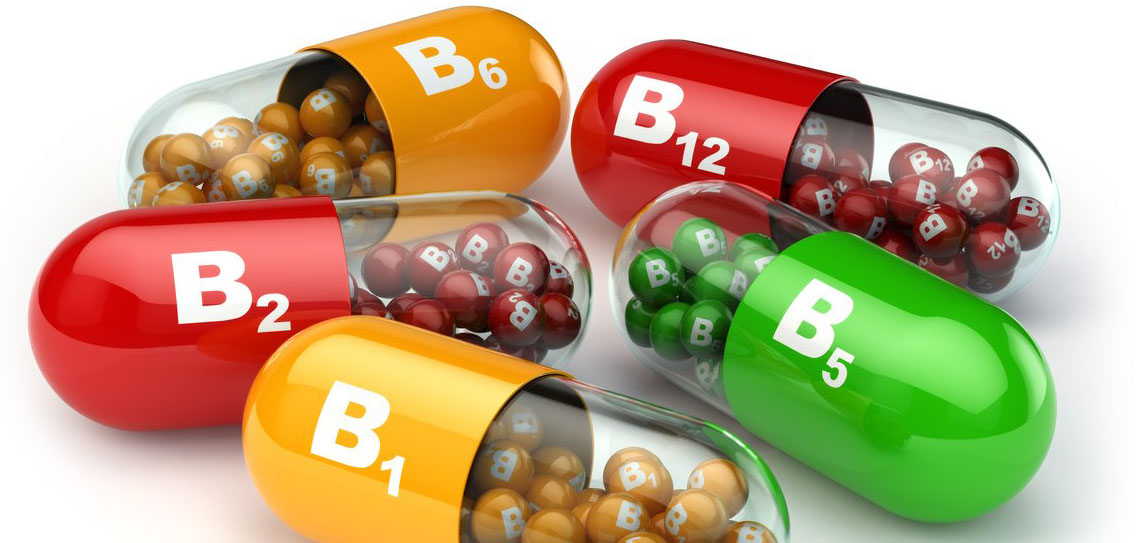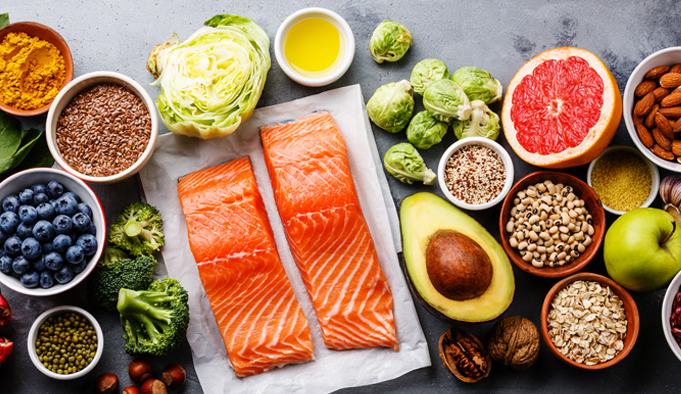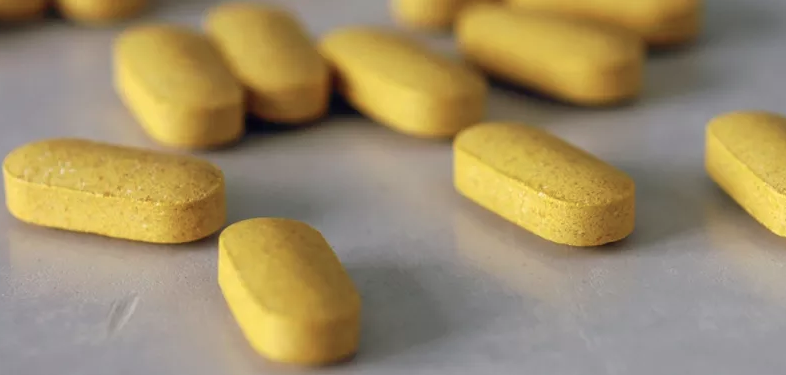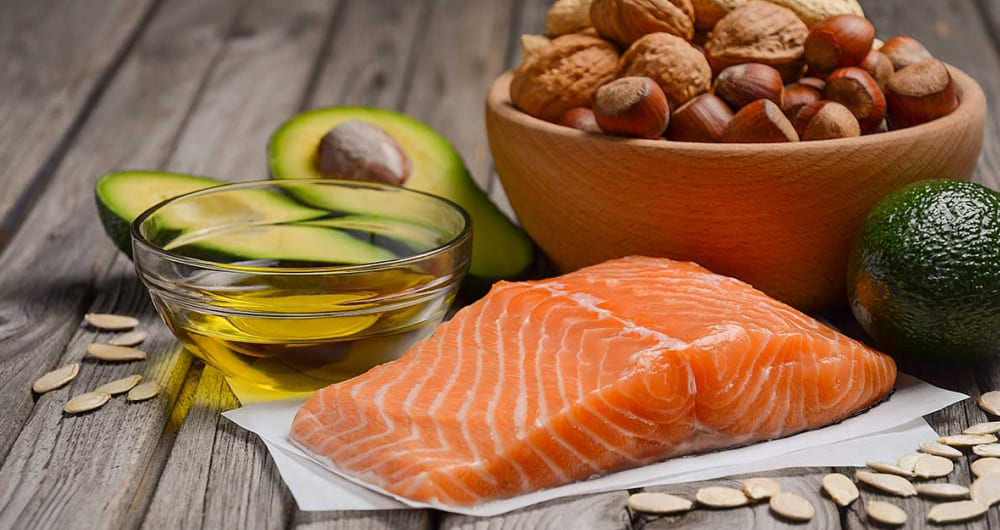Many have heard of vitamin C for immunity, but are you aware it has many benefits beyond boosting the immune system?
From vitamin C powder to injections and supplements, this vitamin has a wide range of uses, some of which may be surprising to many.
Vitamin C is an essential micronutrient (1) that helps to enhance many functions of the body, far beyond the immune system. It even plays a critical role in making sure your body absorbs enough iron (2, 3). For those who are deficient or low in iron, it can be helpful to eat iron-rich foods alongside vitamin C-rich foods to boost absorption levels faster (4).
This micronutrient is also a potent antioxidant that helps to decrease inflammation in the body, which can help to prevent many chronic diseases as well (5, 6).
Vitamin C is a water-soluble vitamin that the body cannot make on its own, so it is necessary to replenish levels daily with food and supplements.



Ideally, you want to make sure you are getting vitamin C from food mainly because you also get many other phytonutrients and minerals from the food that you do not get from supplements. You never want to substitute a supplement for food.
Summary: Vitamin C is a powerful water-soluble vitamin. It is well-known for its immune-boosting properties, but it is also a rich antioxidant which is helpful for reducing inflammation and preventing chronic disease, and even enhances the absorption of iron. It is best to consume vitamin C-rich foods often unless instructed to take a supplement by a doctor.
Table of Contents
Health Benefits of Vitamin C
Read on to check out the many health benefits of vitamin C, along with the best dietary sources, and possible risk factors of taking too much below.
1. It Can Give the Immune System a Boost
Vitamin C powder, capsules, and even injections help to enhance the immune system by slowing down inflammation and oxidative stress in the body (7, 8).
Most people know that vitamin C can be a powerful tool to ward off illnesses like the flu and the common cold, but it can do even more than that.
Taking adequate amounts of vitamin C can help to slow down cold symptoms (9) that are already present when you experience a cold.
Picture that you have a running nose, and it just will not stop whatever you do. If you take larger vitamin C dosages, you can help to stop the sniffles in their tracks sooner.
Make sure to have some vitamin C on hand to help ward off sickness and stop symptoms from getting in the way of your daily routine.
Summary: Vitamin C is commonly known as an immune booster. Vitamin C slows down inflammation and oxidative stress, boosting the strength of the immune system. Consuming adequate vitamin C can even slow down cold symptoms that are present and ward off the sickness quicker. Keep a few vitamin C powders on hand when you’re feeling ill and consume vitamin C-rich foods often when sick.
2. It Can Prevent Wrinkles
Vitamin C is a potent antioxidant that can help to prevent wrinkles because it plays a role in collagen synthesis (10, 11).
You may notice that vitamin C is present in many anti-wrinkle creams and even your typical moisturizer. That is because many are aware that this vitamin can give not only your immunity a lift but your skin too (12).
Although there is some evidence that vitamin C can help prevent wrinkles, it is crucial to leave the hype behind. That is because there are many factors necessary to help prevent wrinkles.
To assist with preventing wrinkles, you need to consume many different nutrients beyond vitamin C. It is vital to have a healthy balanced diet to keep your skin supple and youthful.
It is also crucial to be aware of your lifestyle habits and environment since factors like smoking, and exposure to harsh chemicals can make significant changes to your skin health.
Try to embrace the natural changes in your skin that time brings, but remember that a healthy diet has a better chance of keeping your skin in better condition longer.
Summary: Vitamin C is a powerful antioxidant that plays a role in collagen synthesis, preventing wrinkles. Many topical anti-wrinkle creams and moisturizers have vitamin C for this reason. Vitamin C isn’t the only nutrient helpful for reducing wrinkles and improving skin health, so be sure to consume a balanced diet, drink water, avoid harsh chemicals, and wear sunscreen often.
3. It Can Help Prevent & Heal Sunburn
Vitamin C is not only a skin-saver when it comes to preventing wrinkles, but it can also help to prevent you from getting more sunburns (13, 14).
This antioxidant helps to replenish your skin tissue on a cellular level (15). However, it is crucial to know that vitamin C should never be a replacement for sunscreen. It should be merely a helpful addition to your regular sunscreen routine.
Taking vitamin C before you get into the sun can help prevent sunburn, especially for those who are deficient in the vitamin and those with fair skin. It can be a lifesaver for those who burn easily.
Since the skin loves vitamin C, it can also help to take away the pain and severity of sunburn fast (16). A large dose of even just 1,000 mg of vitamin C can diminish pain and even the appearance more quickly.
You should always try to avoid getting sunburn in the first place, but if it does happen, make sure you grab some vitamin C, Aloe Vera, and reap the skin recovery benefits.
Summary: Although not a replacement for sunscreen, vitamin C is helpful for replenishing damaged skin tissue. Taking vitamin C and applying sunscreen before heading out in the sun helps to protect against sunburns, especially for those who sunburn easily. If you do get a sunburn, vitamin C and Aloe Vera together can help relieve it.
4. It Can Heal Wounds Faster
Vitamin C is a powerhouse nutrient because it heals the body from the inside out. Appearances in the skin and an immunity boost are just the beginning of the many health benefits.
Vitamin C has the power to heal wounds faster because it is necessary for the biosynthesis of collagen (17, 18). Collagen is vital to replace connective tissue in the body. Keep in mind, one of the symptoms of vitamin C deficiency is slow wound healing (19).
If your wounds, like cuts, scrapes, and more are not healing promptly, make sure you are eating a healthy diet rich in vitamin C. It may be helpful to add a supplement as well, even if only for a short time.
Eating a balanced diet is essential to maintain healthy immune function, ward off illness, improve skin health, and heal wounds quickly.
Remember to keep an eye on your diet, and maintain the 90, 10 rule to dieting. If 90 percent of your diet is a healthy nutrient-dense food, you can still enjoy the 10 percent of unhealthier foods sometimes if you are otherwise healthy.
Summary: Vitamin C is also very helpful for healing wounds quicker. Vitamin C is necessary for the biosynthesis of collagen, which is vital to recreate connective tissue. In fact, slow wound healing is a symptom of vitamin C deficiency. If the wound is severe, consuming more vitamin C through food or even a supplement may be helpful for healing.
5. Can Help Prevent Cancer
Among the many ways vitamin C can help to keep your health and maintain wellness throughout the body, it can also help to prevent many types of cancer (20).
The most common cancers it can prevent include lung, breast, colon, and stomach cancers (21, 22). A diet rich in many different fruits and vegetables can help prevent cancer because they are necessary to keep the body operating optimally.
And, vitamin C can assist in further reducing carcinogens in the body. Then, vitamin C releases antioxidants to rid the body of more oxidative stress (23). A build-up of free radicals and oxidative stress in the body can result in cancer over time.
Lifestyle factors and overall dietary consumption are critical to consider when preventing or reducing cancer, too. But it is good to understand that vitamin C levels are often lower in the blood work of those who have cancer (24).
Summary: Vitamin C is helpful for preventing cancer because its rich antioxidant properties help to reduce oxidative stress and build-up of free radicals in the body, which are known to cause cancer. Overall, consuming many vegetables and fruits daily is helpful for cancer prevention.
6. It Can Lower the Risk of Cardiovascular Disease
A diet high in fruits and vegetables has always had a direct connection with a possible lower risk of cardiovascular disease that can result in heart attacks, stroke, heart disease, and more (25, 26).
Vitamin C can help to prevent cardiovascular disease because it can help lower oxidative stress in the body (27). Since vitamin C is a powerful antioxidant, that makes it a beneficial heart-healthy micronutrient as well.
The heart needs a healthy dose of antioxidants to stay healthy and thriving. Although there are some conflicting studies around vitamin C for cardiovascular health, there is some evidence it can be helpful (28).
Vitamin C shows to reduce vascular apoptosis, which helps to prevent plaque build-up that often results in arteriosclerosis (29). Heart disease can occur due to too much plaque in the arteries.
Always be sure to eat a well balanced healthy diet to help avoid heart disease in general, as vitamin C is not the only nutrient necessary for heart health. Omega 3 fatty acids, magnesium, vitamin D, and many other vitamins and minerals all work to keep the heart functioning well.
Summary: Vitamin C is very helpful for preventing cardiovascular disease because it is a powerful antioxidant. This helps lower oxidative stress, which in turn improves overall heart health. It even helps to reduce plaque build-up that leads to arteriosclerosis. For optimal heart health, consume plenty of antioxidants like vitamin C, healthy omega-3 fatty acids, magnesium, and vitamin D.
7. It can Help Prevent Age-Related Macular Degeneration & Cataracts
Vitamin A is the first vitamin many think of when it comes to improving and maintaining vision health. While vitamin A is a crucial vitamin for eye health, vitamin C may play a significant role as well.
Reducing oxidative stress in the body is essential to prevent age-related macular degeneration and cataracts, and vitamin C helps to do just that (30, 31). The high levels of antioxidants in vitamin C help to make room for clear vision over time.
While an overdose of too much vitamin C can impair vision, so can an adequate level of vitamin C help to maintain eye health.
The combination of many vitamins such as vitamin C, vitamin E, zinc, and beta-carotene (a form of vitamin A) shows to be promising in reducing the chances of developing age-related macular degeneration (32, 33).
While there is some conflicting information around this, the combination of vitamin C and these other nutrients can also help to slow the process of age-related macular degeneration down.
Summary: Reducing oxidative stress in the body from consuming adequate vitamin C is also beneficial for preventing age-related macular degeneration and cataracts. Consuming adequate vitamin C, E, zinc, and beta-carotene (form of vitamin A) are all very helpful for preventing age-related macular degeneration.
How to Eat More Vitamin C?
There are many foods rich in vitamin C, and the list extends beyond only well-known fruits. You already eat some of these foods regularly.
If you do not consume some or most of these foods in your diet, try to see where you can add in more of these essential nutrient-dense foods to your next meal.
From the most vitamin C to the least, red bell pepper starts off the list with a whopping 95 mg of vitamin C, making up over 100 percent of the daily recommended intake.
Foods Rich in Vitamin C include (34, 35):
- Red bell pepper
- Oranges and orange juice
- Grapefruit and grapefruit juice
- Kiwifruit
- Sweet green pepper
- Broccoli
- Strawberries
- Brussel sprouts
- Cantaloupe
- Cabbage
- Tomato and tomato juice
- Spinach
- Potato
- Cauliflower
- Spinach
- Green peas
Summary: Consuming foods rich in vitamin C daily is very beneficial for overall health. Add chopped bell peppers and spinach to a breakfast omelet, add a spritz of citrus fruit into salads or in your water, serve a side of steamed broccoli for dinner, or add strawberries to yogurt for a snack. Take a look at your current diet to see where you can add vitamin C-rich foods.
Potential Health Risks for Taking too Much Vitamin C
Vitamin C is a water-soluble vitamin, so it is difficult to get too much. However, if you take a megadose of the supplement form, whether it is in powder or capsule form, it can happen.
Although vitamin C overdose is rare, it is possible through excess vitamin C supplementation. It is impossible to eat an abundance of vitamin C from foods alone.
Some health risks that can occur from too much vitamin C include (36):
- Nausea
- Vomiting
- Diarrhea
- Abdominal cramping
- Sleep issues such as insomnia
- Heartburn
Remember that it is rare to consume too much vitamin C, as most of it can pass through urine. Always replenish your levels with food to make sure you are getting adequate levels.
Summary: Vitamin C overdose is rare, but it can happen, especially if you take megadoses in supplement form. Health risks that can occur from vitamin C overdose include nausea, vomiting, diarrhea, abdominal cramping, insomnia, or heartburn.
Conclusion
It is essential to get adequate levels of vitamin C each day from your diet. Whether you enjoy eating vitamin C-rich fruits or vegetables, try to eat vitamin C from a variety of foods.
If you can include all of the vitamin-C rich foods above throughout your week, you will be in good shape. You will get a plethora of phytonutrients, antioxidants, vitamins, and minerals, along with the important micronutrient, vitamin C.
Vitamin C can help reduce the risks of developing many types of cancer, age-related macular degeneration, prevent sunburn, and much more.
It is critical to include vitamin C in your daily diet because the body does not make it on its own. Try to add in more vitamin C-rich foods wherever you can throughout the day. Whether it is with a healthy snack or even just in your favorite meal. There are so many vitamin C-rich foods to choose from, you cannot go wrong.





